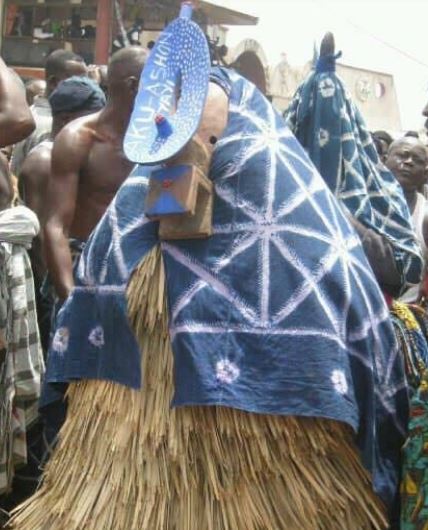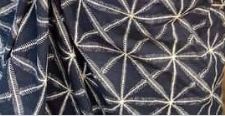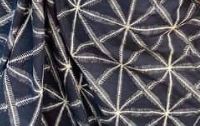The Origin And Migration Journey of Jukun Tribe In Nigeria
Jukun, the tribe that exist in West Africa between the 14th through 18th centuries. History has it that most of the tribes in Northern Nigeria traced their root and origin from Jukun because according to their reason is that most of the tribes are related to Jukun in one way or the other. That’s their own believed. Every tribe is trying to promotes theirs. Follow us as we take you through the history lines of Jukun as a tribe in Nigeria. Because of their bravery, others said that they are from the Kororofa or Kwararafa. The Kororofa were referred to as the most powerful kingdoms in Sudanic empire. And they believed that where they are now residing is believed to be the headquarters of that Kororofa Kingdom.
According to our research and finding like many tribes, we trace the origin of Jukun from the Middle East, precisely Yemen in the Arabian Peninsula. From Yemen, they migrated to Egypt and then to the Chad Basin where they settled at Ngazargamu (this is where many tribes in Northern Nigeria like Ngas, Zaar or Sayawa and Gamawa settled before spreading to other parts of Africa). Most of the tribes scattered either by the Jihad for safety as of that time or to look for better settlement to settle there and to be called their own.
Jukun are descendants of (Kororofa) Kwararafa one of the great and powerful kingoms in Sudanic empire. They now have their headquarters or centre in Wukari of Taraba state Nigeria headed by their king ‘Aka Uku’. Aside Taraba state Nigeria where Jukun are mostly found, other states they are found are Benue, Nasarawa, Plateau, Adamawa, Kano, Katsina, Kaduna and Gombe States in Nigeria and parts of northwestern Cameroon and Chad. No wonder some claimed that other tribes in Northern Nigeria are related Jukun because of their vast extension to many states.
Also Read: Websites That Pay You Money On Daily Basis
Jukun as we all know like other languages, have two subgroups within the same language. How? Someone may asked. Even English has that. We have American English, British English, etc. There different is either speaking it or writing it. The subgroups in Jukun are: Jukun Wanu and Jukun Wapa. They are all Jukun but they have a slide changes of understanding each. Though not deep is just a slide different because what the other called something, the other one will thing that the person did not pronounce it correct but they are the same language. With each claiming the original Jukun.
Which means, we have at least six (6) dialects in Jukun they are Wase Tofa in Plateau state, Donga, Wukari, Jibu, Gwana, Kona, and Pindiga all speaking their own type of Jukun language with a slide different with the other but they all calls themselves Jukun.

Historically, Jukun are ethno-linguistic group or ethnic nation in West Africa. It is worthy to notes that Jukun People are peaceful, well cultured and discipline, friendly, respectful and accommodating etc but are untouchable and undefeated when it comes to War that’s why they are never defeated by any war or Jihad by Othman Dan Fodio since their existence from the Kororofa Kingdom.
Because of their peaceful coexistence with these tribes, Paati, Jidu, Tikari, Bafum, pyeri, chamba, Nama, Tiv and Abakwariga, Tarok, Bachama, Angas, Bagki Igbo, Yoruba, Calabar, Nassarawa and Doma communities, etc These various groups that co-habiting with the Jukun groups for so long that they now speak the Jukun language of Wukari, Takum or Donga varieties fluently.
Like any other tribes, Jukun has their own cultural dressing with a specific colours. The Jukun traditional attire is made up of different colours, patterns and weaves. The main colour of their traditional attires is either black or dark blue with white color in-between as shown below. Other attires worn by the people include Kadzwe, Ayin-po, Adire, and Baku. Kadzwe is used by the Jukun’s traditional rulers for royalty identification.
Economy
On the occupation of the Jukun People, they are predominantly farmers, just like other tribes in the country. They cultivate food and cash crops. There are also fishermen among the people, especially the Jukun Wanu who reside along the banks of River Benue and Niger. Also cloth weaving and cloth dyeing are also peculiar to the people because of their resilience in doing something better.
Jukun because of their love for farming and other businesses likes fishing that’s why many found themselves living in riverine areas of Taraba, Benue, Plateau, Adamawa, Nasarawa, Gombe so that they can also be able to do their fishing business without hindrance whatever. Some of the crops Jukun cultivates are: yam, maize, rice, groundnut, guinea corn, cassava, and vegetables. That’s why they are not lazy people at all.
Food
Any food described as mouthwatering is all about the flavor. It tastes so good that it makes your mouth water. The food looks and smells delicious, making you want to eat it right away. It’s very tempting and people eat it eagerly and with great enjoyment. The following are just a few examples of the many tasty foods and drinks found in the Wanu area. These dishes and beverages are specialties that could be categorized as “table d’hote” and “a la carte” offerings at modern restaurants.
You Can Also Read: Tarok Language In Nigeria
Among the countless flavorful foods and drinks that satisfy your cravings and quench your thirst, whether sauces, soups, or beverages, are: “apyem,” “abubo-zyenta,” “akeh-zye,” “abubo-zye-amweh,” “abubo-wa shishi,” “abubo-doh,” “abubo-duh,” “abubo-kpekpele,” “abubo-weh,” “agyagba,” “anburu,” “abaah,” “akyi-besuu,” “akyi-suu,” “akyi-rogo,” “akyi-shikafa,” “akyi-lankpa,” “akyi-zaa,” “akyi-zumweh,” “akyi-zuku,” “akyi-wanaka” (at wedding events), “asoh,” “asha,” “avombo,” “ambo,” “asuu wa nehneh,” “asuu wa fehfeh,” “sa gbache” (a small beer (burukutu) brew), “Kya wu,” and more.
Marriage In Jukun
Like other tribe, Jukun marriage involve payment of dowry after the young man has seen a woman and like her then he will make a move by proposing to her which we will discuss them on clear terms. But for the marriage process to begin, there are laid down procedures; First, the woman must attain the age of 18 years and above; second, consent to the marriage with same by her parents or guardian (except where the woman shall be married to a traditional title holder). And if the girl is interested, then the marriage processes will begin.
But before the marriage ceremony will be done, there are some procedure to follow some of which are making your intention know to the lady of marriageable age which include courtship, then the woman is entitled to betrothal money (Abegya) to shows your seriousness on her, bride price or dowry (Abeben) will come later when she has become yours in eyes of tradition before doing the religious or white wedding ceremony, you will buy Handbag or Handkerchief (Andu). All these are provided due to the man’s pocket (financial strength). The man is also expected to farm for both his father and mother-in-law (Ane Vyo) in their own farms (little amount can be paid for this). Shortly after this is the solemnization.

Other things to be provided are listed below:
- Greeting money for roofing the girl’s father house (Upyotvyo)
- Solemnization money (Abewagaben)
- Some bags of maize and guinea corn
- She-goat
- It is also expected that the man will fence the father-in-law house with local woven grass (Zana)
The Jukun traditional marriage is meant to promote African culture and its beauty in the eyes of the world. They believed that their bride price is one of the least in Nigeria, so there are many marriages in the land. No one is complaining of where to get money to marry. With little, you can start your husband and wife life without breaking the bank.
Months of the Year. English to Jukun
- January – Jonwuju
- February – Jenza
- March – Natwi
- April – Zawi
- May – Chukone
- June – Di
- July – Sonfa
- August – Ne
- September – Gbayo
- October – Ye
- November – Weku
- December – Kenuju
Hope Jukun culture has motivated you because of its captivating nature and is lovely? You can also visit Wukari or any aforementioned areas that Jukun are found to be able to learn and see more of their culture which we did not even feature some here in our article.
We hope this article is helpful? Keep visiting our website for this and many more cultures for you to entertain yourself with.

